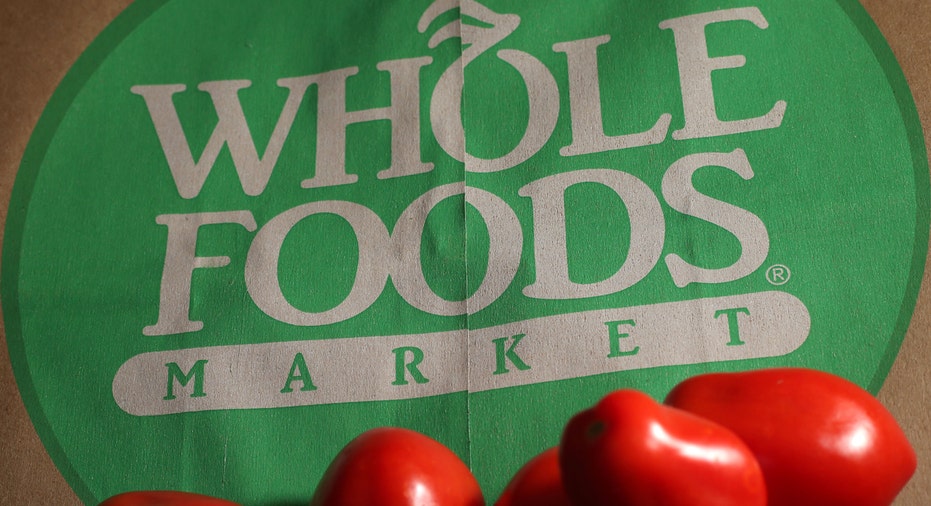How Whole Foods Lost the Recipe for Success

For decades Whole Foods (NASDAQ:WFM) held a virtual monopoly on the natural and organic foods market it pioneered back in 1980. It wasn’t the first specialty market, but founding CEO John Mackey was the first to scale that concept to a full-blown supermarket chain that fulfilled a consumer demand that no one knew existed.
Mackey deserves enormous credit for his vision and execution but he may have succeeded all too well. Today, Whole Foods is besieged by competitors as everyone from Costco (NASDAQ:COST) and Trader Joe’s to a gazillion regional markets cater to the growing ranks of foodies and health-conscious shoppers.
While nobody would deny the Austin, Texas-based company’s role in shaping the current supermarket landscape, that just makes its agonizingly slow and ineffective reaction to all the competition all the more surprising. And it’s been branded as overpriced for so long, it’s having a tough time shaking that image.
How could such a powerful visionary be so myopic for so long?
Perhaps the concept of Conscious Capitalism – which Mackey literally wrote the book on – has an enormous flaw. Or maybe he just took his eye off the ball while he was out and about spreading the gospel these past few years.
While I generally agree with the book’s principles – that leaders serve their stakeholders best when their business has a unifying purpose and culture – it’s certainly possible for traditional stakeholders – customers, employees and investors – to get lost in the grandiosity of a higher purpose.
If you consider that Whole Foods’ mission is to help “support the health, well-being, and healing of both people — customers, Team Members, and business organizations in general — and the planet,” even Mackey would have to admit that’s a pretty big and broad purpose. I’m just saying that maybe he overreached.
Yesterday, the company announced a layoff of 1,500 employees.
It’s interesting to contrast Whole Foods’ mission-driven model with that of privately held Trader Joe’s. Founder Joe Coulombe was a Stanford MBA who couldn’t have been more pragmatic about how he came up with the market’s tropical theme and focus on an eclectic combination of health food and booze.
As I explain in my upcoming book, Real Leaders Don’t Follow, after running a small chain of convenience stores, the original “Joe” thought upwardly mobile college grads might want something better than 7-Eleven. And since the newly launched 747s were making it easier to travel to the tropics, he used that for the theme of his first market in Pasadena. He stocked it with good wine, booze and health foods at reasonable prices because that’s what educated people wanted and they couldn’t afford to pay an arm and a leg. Lo and behold, the concept worked.
He later dramatically cut down on the number of SKUs after reading about another chain that achieved astronomical same-store sales by offering a wide variety of food items but with far fewer options for each food type. That’s what enables the chain to keep prices so low on items it negotiates in bulk, much like Costco does.
While Whole Foods and Trader Joe’s are comparably sized and both companies have been good to their employees – providing significantly better wages and benefits than most competitors – the latter has managed to pull that off while keeping prices low, an equation that Whole Foods has yet to solve.
And while Coulombe sold the company to German grocer Theo Albrecht in 1979, the Albrecht’s have pretty much stayed out of the way and let Trader Joe’s run itself all these years. Dan Bane has been CEO since 2001 and, to my knowledge, the famously secretive company has remained entirely self-funded, profitable and debt-free.
It should come as no surprise that Whole Foods has grand plans to take on Trader Joe’s with its soon-to-be-launched “Whole Foods 365” store concept. That’s all well and good, but Mackey and company would be wise to focus 100% on serving their real stakeholders – customers, employees and shareholders – and let the rest of the planet spin on its own for a while.



















